简体中文
繁體中文
English
Pусский
日本語
ภาษาไทย
Tiếng Việt
Bahasa Indonesia
Español
हिन्दी
Filippiiniläinen
Français
Deutsch
Português
Türkçe
한국어
العربية
How to prevent forex fraud
Abstract:Investors in the UK lose millions of pounds each year to fraudulent forex trading. Here, we list some of the most prevalent forex fraud schemes and offer advice on how to prevent them.
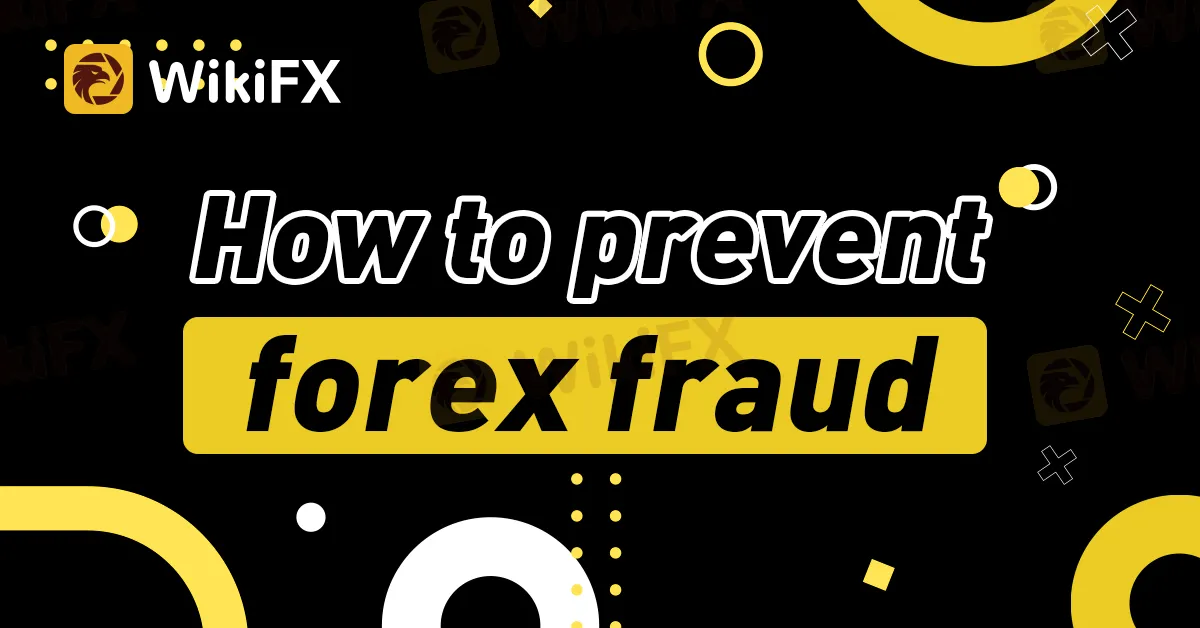
Investors in the UK lose millions of pounds each year to fraudulent forex trading. Here, we list some of the most prevalent forex fraud schemes and offer advice on how to prevent them.
The finest resource for preventing forex frauds is the WikiFX app. WikiFX allows traders to rate and analyze forex brokers from all over the world. The program is available on both the Play Store and the App Store.
The promise of big returns on their investments with little to no risk is a common tactic used by forex scammers to entice traders.
Fraudsters employ a variety of strategies to dupe investors into parting with their money, including posting advertisements on social media and creating bogus websites.
Here, we examine some of the most prevalent forex trading frauds and discuss how to recognize them.
What are frauds in forex trading?
Fraudulent foreign currency schemes are sold to unsuspecting investors through the use of forex trading scams.
They frequently guarantee once-in-a-lifetime investment opportunities where investors can earn large returns quickly.
After receiving money from investors, scammers frequently vanish, leaving investors with nothing.
Six prevalent forex trading frauds
Fraudsters steal money through forex scams by employing a variety of sophisticated strategies.
There are six typical forex scams to be aware of.
phony signal sellers
Companies known as signal sellers make recommendations for the optimum times to purchase and sell currencies based on what they claim to be market analysis. Investors are typically charged a fee for this information.
Scams involving signal sellers occur when businesses charge investors without offering them any advise or when they provide certain trade specifics before disappearing. Typically, they guarantee profitable trades and large profits with their data.
Forex robot ripoffs
A software application known as a forex robot uses an algorithm to automatically purchase and sell currencies on your behalf.
A third party can test and examine the software in reputable forex robots to ensure its functionality.
Untested or fraudulent software that executes trades at random and may result in investor losses is sold by some crooks. Always conduct thorough research to increase your chances of avoiding a robot scam.
Forex trading fraud
Sometimes criminals pose as legal forex brokers or existing investment platforms to deceive individuals into funding fictitious forex funds.
Fraudsters frequently use an authorized forex broker's name and registration number. Always check the FCA registration and only use the contact information there. Scammers frequently claim that these numbers are incorrect because they are outdated.
Additionally, some con artists create up websites that seem exactly alike to defraud investors.
Pyramid scheme for forex
Forex pyramid schemes concentrate on luring new members into investment clubs that promise to provide information and guidance for profitable forex trading.
Members of these programs pay a subscription fee and are urged to find new members so they can earn a commission.
Instead of actual forex trading earnings, this scam makes money from membership fees. Because you advance up the pyramid and 'earn' more money as new recruits join, this business model is known as a pyramid scheme.
The leaders typically shut down the plan and pocket the entire sum of money when no new members can be attracted or when membership begins to decline.
Fraudulent managed forex accounts
A professional forex trader invests money on your behalf through managed FX accounts, which are offered by some investment firms. And for this kind of account, investors typically have to pay a fee or commission.
Scams involving managed forex accounts occur when thieves pose as experts in forex trading but really steal money from investors. Before putting your money into any financial service or platform, it is crucial to do your homework. To avoid being taken advantage of, always check the FCA registration to determine if they are authorized.
Ponzi scheme in forex
Fraudsters promote fictitious currency funds that promise a high rate of return in a short period of time using Ponzi schemes.
In order to provide the idea that the scam is succeeding, they typically only require a minimal initial payment and pay first participants the promised profits.
Then, these investors are urged to get their friends and relatives to join the investment program.
Once a sufficient number of people have contributed to the swindle, the con artists disappear with the money, leaving investors with nothing.
Guidelines for spotting forex frauds
Watch out for these warning flags that can help you spot a currency scam and keep from falling victim.
Unsolicited offers: If a forex investment opportunity contacts you without your consent, it's probably a fraud. Never divulge your personal information or send money to a company if they ask for it.
Investing is always risky; therefore, any organization that claims to offer risk-free investment options is probably a sham.
Unrealistic profits: Forex scams frequently make too-good-to-be-true promises of large returns on your initial investment. Any business promising instant wealth through investments is probably a scam.
Time pressure: A company that tries to trick you into investing soon is probably a scam. Some con artists will even provide bonuses or discounts to entice you to make an immediate investment.
Advertisements on social media: An increasing number of con artists are promoting phony investment possibilities on social media. They frequently entice individuals to invest by showing them pictures and videos of expensive goods.
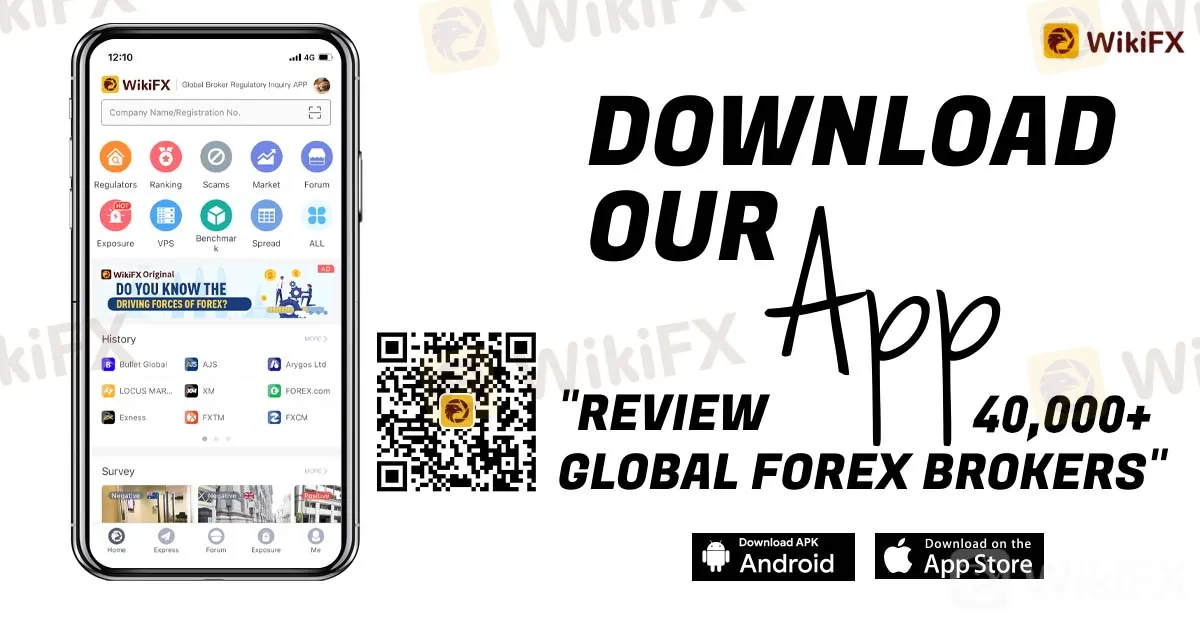
Disclaimer:
The views in this article only represent the author's personal views, and do not constitute investment advice on this platform. This platform does not guarantee the accuracy, completeness and timeliness of the information in the article, and will not be liable for any loss caused by the use of or reliance on the information in the article.
Read more
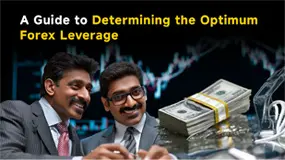
A Guide to Determining the Optimum Forex Leverage
Want to gain a wider forex market position control by investing a minimal amount? Consider using leverage in forex. It implies using borrowed funds to raise your trading position more than your cash balance can let you do it. Forex traders usually employ leverage to churn out profits from relatively small currency pair price changes. However, there is a double-edged sword with leverage since it can multiply profits as well as losses. Therefore, using leverage in the right amount is key for traders. Forex market leverage can be 50:1 to 100:1 or more, which remains significantly greater than the 2: leverage usually offered in equities and 15:1 leverage in futures.
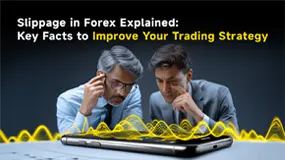
Slippage in Forex Explained: Key Facts to Improve Your Trading Strategy
Have you witnessed a difference between the expected price of a trade and the price at which it is executed in real time? This might be due to slippage, which can happen at any time. However, it prevails mostly when the market remains highly volatile. At the same time, it can also happen during large order executions. Read on to know more about slippage, its impacts, and the strategies to rein in adverse effects.
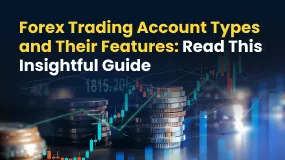
Forex Trading Account Types and Their Features: Read This Insightful Guide
Want to open a forex account to enjoy the thrill of compounding returns? You should first know the various forex trading account types. Choosing the right option from the list of forex accounts is critical to experiencing a hassle-free and successful trading journey. Forex brokers design trading accounts based on your needs, trading experience, and financial goals. Therefore, understanding each forex trading account type and its key features becomes essential.. This will help you make the right choice. In this article, we have discussed everything about forex accounts. Take a look!
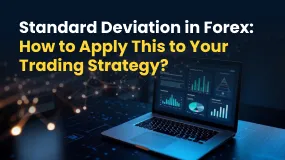
Standard Deviation in Forex: How to Apply This to Your Trading Strategy?
Do you recall the concept of standard deviation being taught in your school days? The concept, which measures the variation within a set of data points relative to the mean average of the dataset. A greater standard deviation hints at higher variability. On the other hand, a lower standard deviation means lower variability from the mean. But what is standard deviation in forex, and how can you apply it to your trading strategy? This is what we will discuss here.
WikiFX Broker
Latest News
Private payrolls rose 42,000 in October, more than expected and countering labor market fears, ADP says
Yields Rise, Rate-Cut Odds Slide As ISM Services Survey Signal Inflation Fears
Op-ed: The fuel for the AI boom driving the markets is advertising. It is also an existential risk.
Stonefort Broker Review 2025: Legit or Risky? A Complete Analysis
He Thought It Was a Crypto Investment; It Cost Him RM1.2 Million
CHINA BEST Broker Review: Regulation and Risks
Uniglobe Markets Review 2025: A Safe Broker or a High-Risk Scam?
Chicago Fed's Goolsbee says he's cautious about further rate cuts during shutdown
These Are Europe's Top Economies By Projected 2026 GDP
Quantower Review 2025: User Reviews and Complaints in India
Currency Calculator




